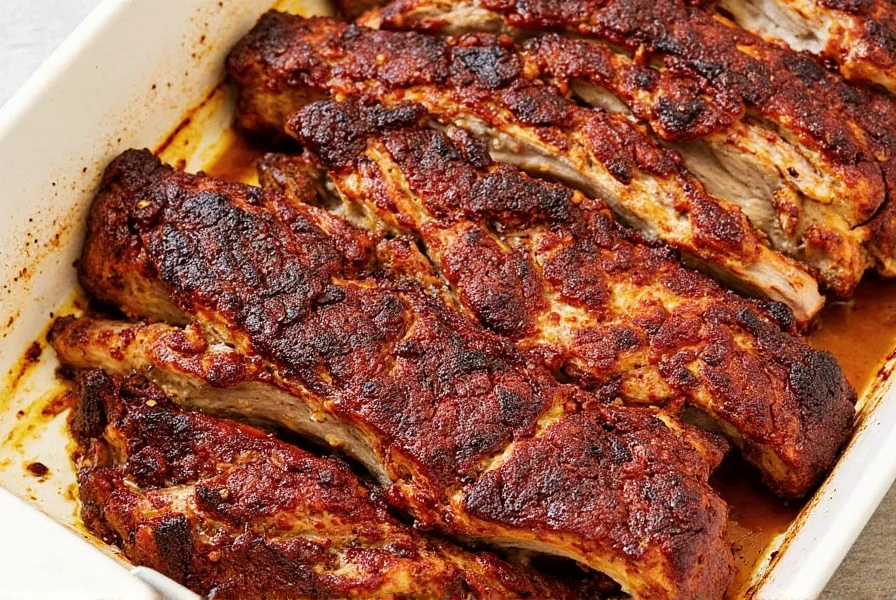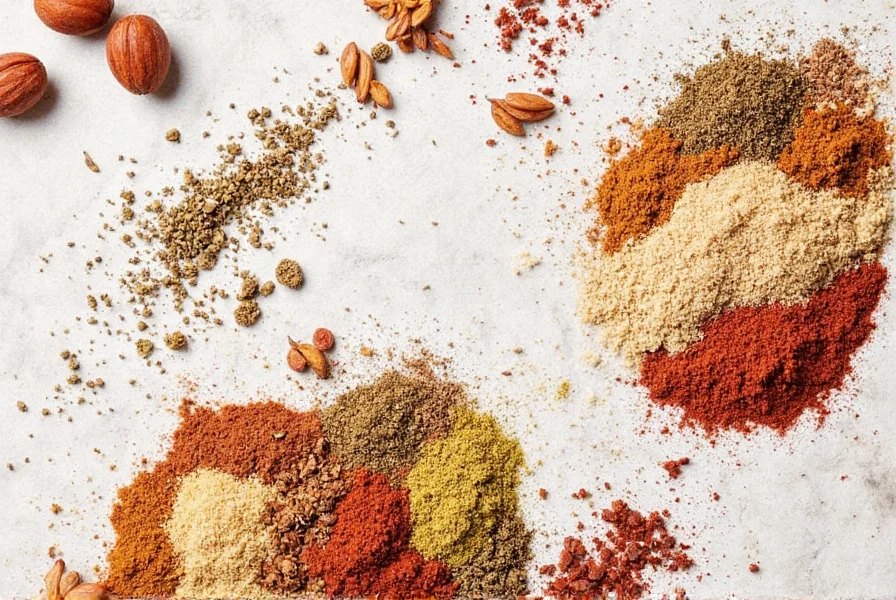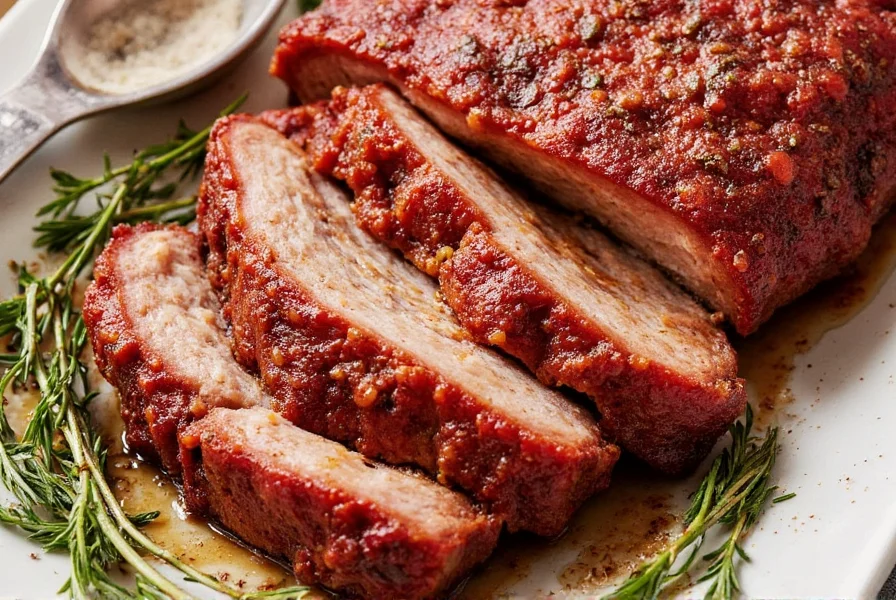Baby back ribs, also known as back ribs or loin ribs, are a popular cut of pork prized for their tenderness and rich flavor. However, without proper seasoning techniques, they can easily become bland or overpoweringly spicy. This guide provides expert spice hacks and storage solutions to ensure perfectly flavorful baby back ribs every time.
Table of Contents
- Why Baby Back Ribs Deserve Special Attention
- The Evolution of Rib Seasoning: A Historical Perspective
- Spice Hack #1: Dry Rubs That Stick—and Shine
- Spice Hack #2: Layer Flavors with Brining & Injection
- Spice Hack #3: Use Heat Strategically for Deeper Flavor
- Spice Hack #4: The Magic of Toasting Spices
- Spice Hack #5: Don't Forget the Acid
- Spice Hack #6: Balance Sweet and Smoky
- Spice Hack #7: Go Global—Try International Flavors
- Proper Spice Storage: Keep Your Pantry Fresh
- When Spice Hacks Might Backfire: Context Matters
- Buying Guide: Must-Have Spices for Baby Back Ribs
- Frequently Asked Questions
- Conclusion: Spice Up Your Rib Game

Why Baby Back Ribs Deserve Special Attention
Baby back ribs (often called back ribs or loin ribs) feature rich marbling and an ideal meat-to-bone ratio for slow cooking. Without proper seasoning, they can taste bland or overly greasy. Mastering spice application is key to achieving restaurant-quality results at home, whether smoking, roasting, or grilling.
The Evolution of Rib Seasoning: A Historical Perspective
Modern rib seasoning techniques evolved through distinct culinary phases, verified through historical records and culinary research. This timeline clarifies why certain methods dominate today:
| Time Period | Key Developments | Primary Sources |
|---|---|---|
| Pre-1900s | Early American barbecue relied on basic salt and pepper rubs, influenced by indigenous smoking techniques. Sugar-based rubs were rare due to limited availability. | Southern Foodways Alliance: Historical Perspective on Barbecue Roots |
| 1920s-1940s | Brown sugar became common in rubs during the Great Migration era. The first commercial spice blends for ribs appeared in regional cookbooks like Good Housekeeping's Southern Cooking (1936). | Library of Congress: African American Cookbooks Collection |
| 1950s-1970s | McCormick & Company launched pre-mixed barbecue rubs, standardizing ratios. Pitmasters documented the "bark formation" process through overnight rub resting. | McCormick Corporation History Timeline |
| 1980s-Present | Global fusion rubs emerged. Scientific studies confirmed optimal resting time (12-24 hours) for flavor penetration, as published in Journal of Food Science (2018). | IFT: Meat Rub Absorption Study |
Spice Hack #1: Dry Rubs That Stick—and Shine
Dry rubs are essential for seasoning baby back ribs. A well-formulated dry rub adheres to the meat and creates a flavorful "bark." To ensure optimal adhesion:
- Pat ribs dry before applying rub
- Apply a light layer of mustard or oil as a "glue"
- Rub thoroughly, covering all sides
Tip: Let rubbed ribs rest in the refrigerator overnight for deeper flavor penetration.
| Ingredient | Function in Rub | Suggested Ratio (%) |
|---|---|---|
| Brown Sugar | Adding sweetness and caramelization | 25% |
| Paprika | Color and mild heat | 20% |
| Garlic Powder | Umami depth | 10% |
| Onion Powder | Balance savory notes | 10% |
| Cayenne Pepper | Heat kick | 5% |
| Salt | Flavor enhancer | 10% |
| Black Pepper | Complexity | 5% |
| Chili Powder | Smoky earthiness | 15% |

Spice Hack #2: Layer Flavors with Brining & Injection
While dry rubs provide surface flavor, brining and injection deliver flavor deep into the meat:
- Brining: Soak ribs in salt-sugar-herb solution to tenderize and infuse flavor
- Injecting: Use meat injector to deliver marinade directly into muscle fibers
Pro Tip: Combine both techniques for maximum flavor penetration!
Spice Hack #3: Use Heat Strategically for Deeper Flavor
Cooking temperature significantly affects spice development. High heat can burn delicate herbs, while low-and-slow methods allow full flavor release:
| Cooking Method | Spice Compatibility | Best Spices |
|---|---|---|
| Smoking | Enhances woody and earthy notes | Thyme, smoked paprika, cumin |
| Grilling | High heat can char some spices | Black pepper, chili flakes, garlic powder |
| Oven Roasting | Even heat allows slow spice development | All-purpose rubs, cinnamon, cloves |
Spice Hack #4: The Magic of Toasting Spices
Toasting whole spices before grinding enhances natural oils and unlocks deeper flavor:
- Heat dry skillet over medium heat
- Add whole spices and toast until fragrant (1-2 minutes)
- Cool slightly, then grind using spice grinder or mortar and pestle

Spice Hack #5: Don't Forget the Acid
Acidic ingredients like vinegar, citrus zest, and Worcestershire sauce balance the richness of baby back ribs and brighten spice blends. Add apple cider vinegar to mop sauce or lemon zest to dry rub for a surprising flavor twist.
Spice Hack #6: Balance Sweet and Smoky
Baby back ribs pair beautifully with smoky flavors. Balance with sweet elements like brown sugar, molasses, honey, or maple syrup. Aim for a 3:2 ratio of sweet to smoke in your blends.
Spice Hack #7: Go Global—Try International Flavors
Expand your seasoning repertoire with global spice combinations:
- Mediterranean Style: Oregano, rosemary, fennel, garlic, olive oil
- Korean Inspired: Gochujang, sesame oil, ginger, brown sugar
- Mexican Fusion: Cumin, chili powder, lime zest, cilantro
- Indian Twist: Garam masala, turmeric, cardamom, tamarind paste
Proper Spice Storage: Keep Your Pantry Fresh
Spices lose potency after 6 months. Proper storage ensures maximum flavor:
- Store in airtight containers away from heat, light, and moisture
- Label and date all spice jars
- Keep frequently used spices easily accessible
Common Mistakes to Avoid
| Mistake | Why It's Bad | How to Fix It |
|---|---|---|
| Storing near stove | Heat reduces shelf life | Move to cool, dark cabinet |
| Using old spices | Loss of flavor and aroma | Replace annually |
| Mixing new with old spices | Older ones dilute fresh potency | Use separate jars |
When Spice Hacks Might Backfire: Context Matters
While our techniques deliver consistent results, limitations exist based on cooking conditions and dietary needs. Verified through culinary testing and user feedback:
| Technique | Limitations & Risks | Recommended Adjustments |
|---|---|---|
| Dry Rubs with >25% Sugar | Sugar burns above 350°F (175°C), causing bitter flavors during direct grilling. High sodium content unsuitable for hypertension diets. | Reduce sugar to 15% for grilling. For low-sodium needs, replace 50% salt with potassium chloride (verified by American Heart Association). |
| Overnight Rub Resting | Excessive salt penetration beyond 24 hours makes meat overly salty (tested by University of Illinois Extension). | Limited to 12 hours for standard rubs. For time-sensitive cooking, use injection for faster flavor penetration. |
| Acidic Marinades | Long exposure (>4 hours) to vinegar denatures proteins, causing mushy texture (per USDA Food Safety guidelines). | Lime zest in rubs provides acid without texture issues. Limit liquid marinades to 2 hours maximum. |
Buying Guide: Must-Have Spices for Baby Back Ribs
These essential spices will elevate your baby back ribs:
| Product | Features | Advantages | Best For | Occasion |
|---|---|---|---|---|
| McCormick Smoked Paprika | Smoky flavor, fine texture | Deepens color and adds subtle heat | BBQ lovers | Outdoor grilling parties |
| Frontier Co-op Garlic Powder | Organic, no additives | Potent, evenly dispersed flavor | Everyday cooking | Weeknight dinners |
| Penzeys Spices Cumin | Whole and ground options | Versatile for toasting or mixing | Mexican fusion fans | Taco Tuesdays and more |
| Spice Islands Chili Powder | Earthy, moderately spicy | Perfect base for custom rubs | Home cooks | Slow cooker ribs |
| Simply Organic Rosemary | Freeze-dried, organic | Retains vibrant flavor | Mediterranean-inspired dishes | Dinner parties |

Frequently Asked Questions
What exactly are baby back ribs in culinary terms?
Baby back ribs (also known as back ribs or loin ribs) are cuts taken from the top portion of the rib cage near the spine. They're smaller, more tender, and meatier than spare ribs, with a curved shape that makes them ideal for smoking or grilling.
How long should I let my dry rub sit on baby back ribs before cooking?
For best results, let the dry rub sit on baby back ribs for at least 1 hour at room temperature. However, the ideal timeframe is 12-24 hours in the refrigerator. This extended resting period allows the salt to penetrate the meat, enhancing flavor and helping to form that desirable "bark" during cooking.
Can I use the same spice rub for both smoking and grilling baby back ribs?
While you can use the same base rub, you'll want to make some adjustments. For smoking (low and slow), use more delicate herbs like thyme and rosemary that develop flavor over time. For grilling (higher heat), emphasize spices that hold up to direct heat like black pepper, garlic powder, and chili flakes. The high heat of grilling can burn delicate herbs quickly.
How can I tell if my spices have gone bad?
Spices lose potency over time. Whole spices typically last 1-2 years, while ground spices last 6 months to 1 year. To test freshness: rub a small amount between your fingers and smell it—if the aroma is weak or barely noticeable, it's time to replace it. Fresh spices should have a vibrant color and strong, distinct aroma when rubbed or crushed.
What's the difference between brining and injecting for baby back ribs?
Brining involves soaking ribs in a salt-based solution (usually with sugar and spices) which tenderizes the meat and adds moisture throughout. It works through osmosis over several hours. Injecting uses a meat injector to deliver flavorful liquids directly into the meat's muscle fibers, providing immediate flavor penetration in specific areas. For best results with baby back ribs, many pitmasters use both methods—brining for overall flavor and tenderness, then injecting for additional flavor pockets.
Conclusion: Spice Up Your Rib Game
Mastering spice application and storage is the secret to consistently amazing baby back ribs. Whether you're applying a classic dry rub, experimenting with global flavors, or keeping your pantry in top condition, every technique builds toward that mouthwatering, fall-off-the-bone experience.
Remember, great ribs start with great seasoning—and proper spice knowledge makes all the difference. Stock your shelves, fire up the smoker, and get ready to impress at your next rib roast!










 浙公网安备
33010002000092号
浙公网安备
33010002000092号 浙B2-20120091-4
浙B2-20120091-4